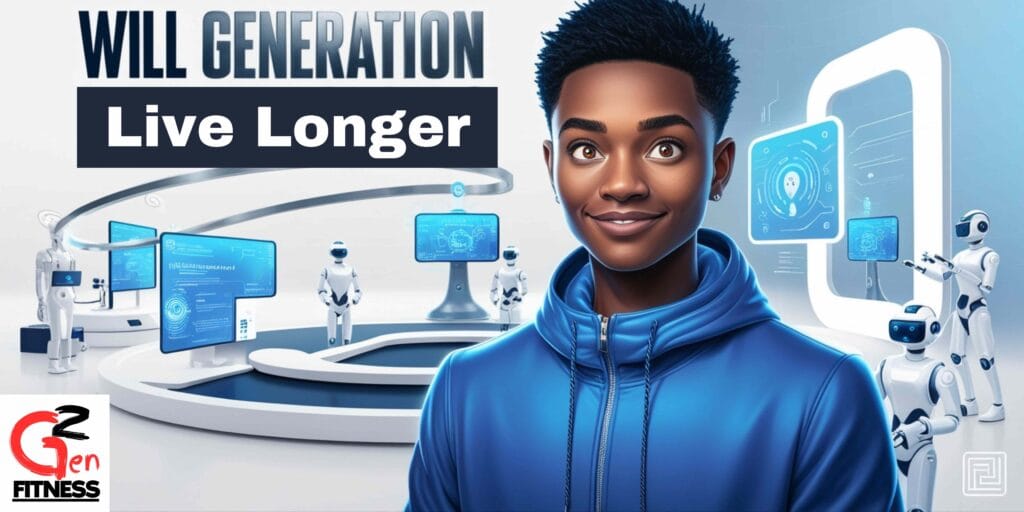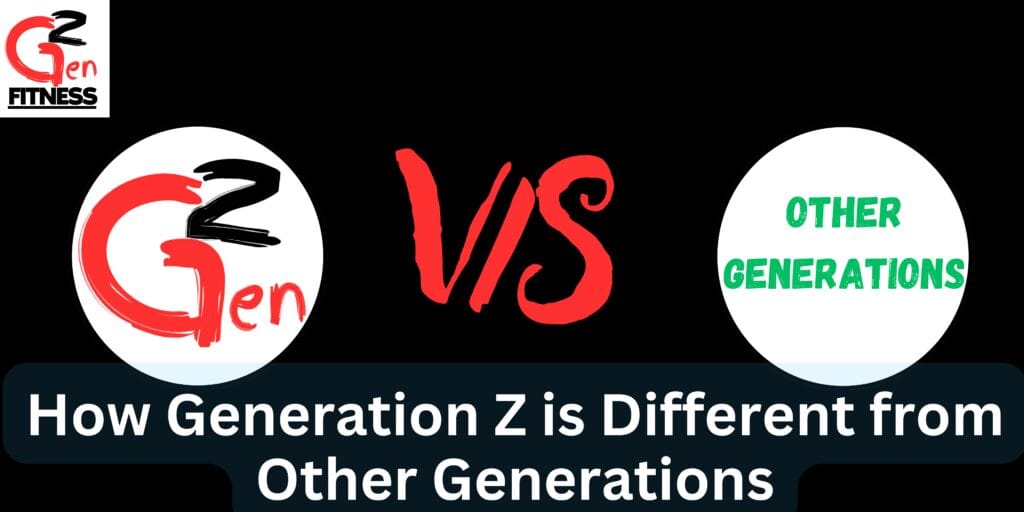

Will Generation Z Live Longer?
Generation Z—those born between the late 1990s and early 2010s—has witnessed rapid advancements in technology, healthcare, and lifestyle practices. But with all these changes, one crucial question arises: will Gen Z live longer than previous generations? To answer this, we need to examine the various factors that influence lifespan, from medical advancements to mental health, lifestyle choices, and even environmental challenges. Let’s dive into what the future might hold for Gen Z’s longevity.
Understanding Generation Z
Generation Z, often called “Zoomers,” follows Millennials and consists of individuals born between 1997 and 2012. This generation is the first to grow up in a fully digital world, with smartphones, social media, and instant access to information being everyday norms. They are also characterized by their adaptability to change, their emphasis on mental health, and a global awareness of environmental and social issues.
Gen Z’s health outcomes are shaped not just by technological advancements but also by the unique social, economic, and environmental challenges they face. Their attitudes toward health, wellness, and aging will play a significant role in determining how long they live.
Historical Trends in Life Expectancy
Life expectancy has steadily increased over the past century. This is due to a combination of factors like medical advancements, improved living conditions, better nutrition, and public health initiatives. In the 1900s, global life expectancy hovered around 30-40 years. Today, in many countries, people are expected to live well into their 80s or even 90s.
Improvements in Medicine and Public Health
The development of vaccines, antibiotics, and advanced surgical techniques has played a critical role in extending life expectancy. Diseases that were once fatal, such as smallpox and polio, have been nearly eradicated, while others, like cancer and heart disease, are now more treatable than ever before.
Increased Lifespan Across the 20th and 21st Centuries
Thanks to these breakthroughs, Generation Z is starting life with the potential for even greater longevity. However, their lifespan will depend on how new challenges, such as antibiotic resistance and global pandemics, are managed.
Factors That Could Extend Gen Z’s Lifespan
Advances in Medical Technology
Cutting-edge technologies like AI, robotics, and nanotechnology are revolutionizing healthcare. Robotic surgeries, AI-assisted diagnostics, and telemedicine are all making healthcare more efficient and accessible, leading to better health outcomes.
Precision Medicine and Genetic Research
Personalized medicine, which tailors treatment to an individual’s genetic makeup, is likely to become the norm for Generation Z. Genetic research holds the potential to prevent diseases before they even develop, which could dramatically increase lifespan.
Focus on Preventative Healthcare
Gen Z is more focused on preventative healthcare than previous generations. With the help of wearable technology, many are actively tracking their health data and making lifestyle adjustments to avoid chronic illnesses.
The Role of Technology in Health
Health Tracking Devices and Wearables
Devices like Fitbits, Apple Watches, and other health monitoring tools allow individuals to keep track of vital signs such as heart rate, sleep patterns, and physical activity. This real-time data encourages healthier habits and early detection of potential health issues.
The Impact of AI and Data on Personalized Healthcare
AI is transforming healthcare by analyzing vast amounts of data to predict health outcomes. For example, AI can detect early warning signs of conditions like heart disease or diabetes, enabling individuals to make lifestyle changes before the conditions progress.
The Influence of Diet and Lifestyle
Plant-Based and Personalized Diets
Generation Z is at the forefront of dietary changes, with a growing preference for plant-based diets. Many members of Gen Z are also embracing personalized nutrition plans based on their genetic makeup, which helps optimize their health.
Fitness Trends and Mindfulness Practices
Fitness is also a top priority for this generation. Gen Z embraces trends like yoga, HIIT (High-Intensity Interval Training), and mindfulness practices to maintain both physical and mental health.
Mental Health Awareness
Mental health is another area where Gen Z is setting new standards. With open conversations about anxiety, depression, and other mental health issues, the stigma surrounding these conditions is diminishing. Addressing mental health earlier in life may prevent its long-term impact on physical health.
How Generation Z is Different from Other Generations: Genzfitness


Challenges Facing Generation Z’s Longevity
Mental Health and Rising Stress Levels
While mental health awareness is growing, Gen Z also faces unprecedented levels of stress due to social media pressure, economic instability, and environmental concerns. This rise in stress can negatively impact their physical health over time.
Sedentary Lifestyles and Technology Dependence
While technology offers numerous health benefits, it also encourages sedentary behavior. Prolonged screen time and decreased physical activity may lead to health issues like obesity and cardiovascular diseases.
Environmental Factors and Climate Change
Environmental changes present a unique challenge for Gen Z’s longevity. Pollution, rising global temperatures, and food insecurity could all affect health outcomes in the long run.
Public Health and Disease Prevention
The Importance of Vaccination and Disease Control
Maintaining robust vaccination programs will be essential for ensuring that Gen Z avoids outbreaks of preventable diseases. Public health policies that prioritize disease prevention will be key to extending life expectancy.
How Global Pandemics Could Impact Lifespan
The COVID-19 pandemic is a stark reminder of how global health crises can affect longevity. While advances in medicine helped curb the pandemic, future pandemics could pose similar threats to Gen Z’s lifespan if not managed properly.
The Genetic Revolution: CRISPR and Beyond
What Is Gene Editing?
Gene editing technology, particularly CRISPR, holds the potential to eradicate genetic diseases that shorten lifespans. While still in its early stages, this technology could allow for the correction of genetic disorders before they even manifest.
The Potential of CRISPR in Disease Prevention and Treatment
As CRISPR technology advances, it could become a critical tool in preventing diseases like cancer and heart disease, further extending Gen Z’s lifespan.
The Role of Social Connections and Community
The Importance of Social Ties on Longevity
Strong social connections are linked to longer lifespans. Gen Z, with their reliance on digital communication, may face challenges in building face-to-face relationships, but virtual communities could fill that gap.
The Rise of Virtual Communities
Online platforms allow Gen Z to form global networks of support. These digital communities can foster meaningful relationships, which are crucial for mental well-being and longevity.
Environmental Impact on Health and Longevity
Pollution and Its Effect on Life Expectancy
Air and water pollution contribute to respiratory and cardiovascular diseases. If not addressed, these environmental issues could shorten Gen Z’s lifespan.
Climate Change and Global Health Risks
Climate change poses significant threats to global health. Heatwaves, natural disasters, and food scarcity could impact Generation Z’s overall life expectancy.
Future Healthcare Systems
Will Healthcare Be Accessible for All?
As healthcare technology advances, the question remains: will everyone have access? Without proper healthcare access, many members of Gen Z could face reduced lifespans.
The Role of Governments and Policies in Healthcare
Government policies will play a significant role in ensuring healthcare is available to all, regardless of socioeconomic status.
Ethical Considerations for a Longer Life
Will We Have the Resources for a Longer-Living Population?
A longer-living population could strain resources like healthcare and social security. Ensuring that the world is prepared for this shift will be a significant challenge.
The Social and Economic Implications of Increased Lifespan
An increase in life expectancy may also have economic impacts, such as changes in retirement age and workforce dynamics.
Generation Z’s Attitude Towards Aging
How Gen Z Views Longevity and Aging
Gen Z views aging with a focus on health and quality of life rather than just longevity. They are more concerned about living well than simply living longer.
Their Role in Shaping Future Longevity Trends
Through their activism and engagement in health, environmental, and technological issues, Gen Z will likely play a significant role in shaping the future of human longevity.
Conclusion: Will Generation Z Live Longer?
In conclusion, Generation Z has the potential to live longer than any previous generation due to advancements in healthcare, technology, and an increasing focus on wellness. However, challenges such as mental health issues, environmental concerns, and access to healthcare could limit these gains. By addressing these obstacles and continuing to innovate in health and medicine, the future for Generation Z could indeed be one of extended longevity and improved quality of life.
FAQs
How long is Generation Z expected to live?
Current projections suggest that Generation Z could live into their 90s or beyond, depending on healthcare advancements and lifestyle choices.
What is the biggest health concern for Gen Z?
Mental health, stress, and anxiety are among the biggest health concerns for Gen Z, with potential long-term impacts on their overall well-being.
How does technology impact Gen Z’s health?
While technology offers tools for better health monitoring, it can also contribute to sedentary lifestyles and increased stress levels.
What role does mental health play in lifespan?
Poor mental health can lead to chronic physical conditions, making it a significant factor in overall lifespan.
Can environmental issues affect Gen Z’s longevity?
Yes, factors like pollution, climate change, and resource scarcity can all negatively impact health outcomes and reduce life expectancy.
Best Book to read in 2024- https://eatyourproblems.store/





